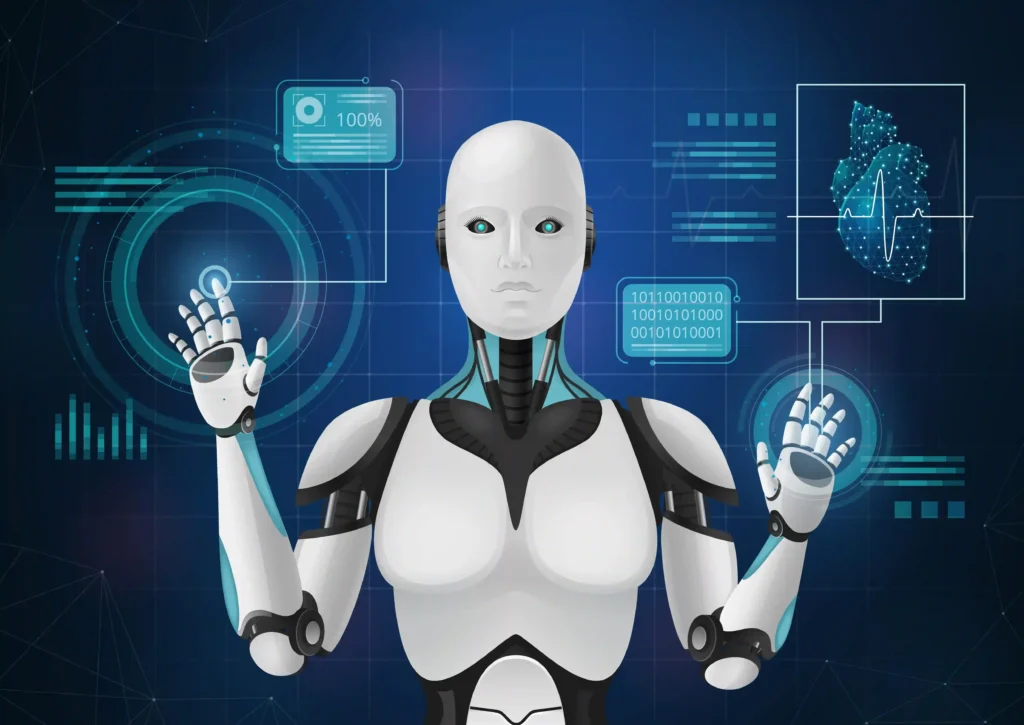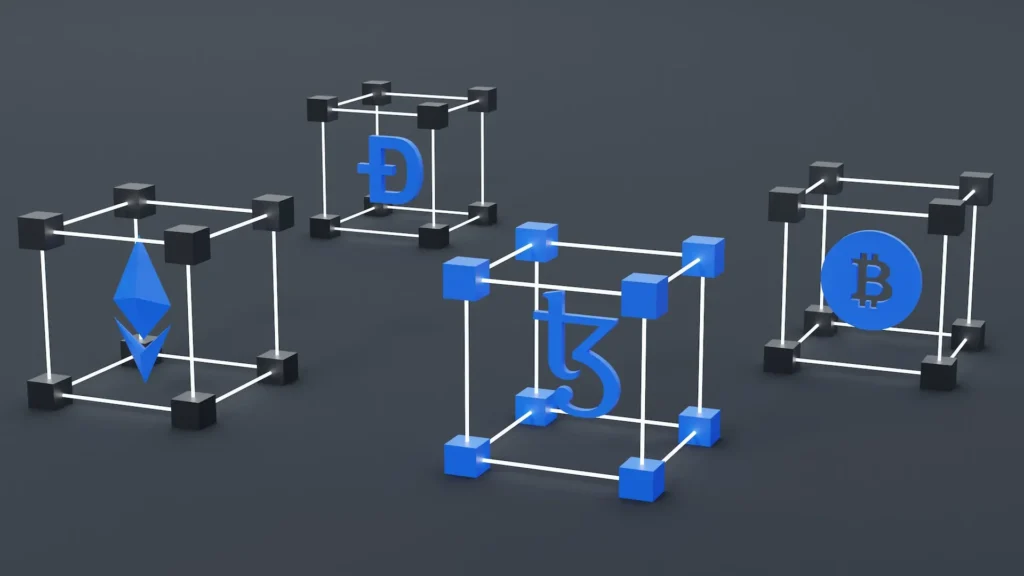Artificial Intelligence (AI) has emerged as a transformative force across every industry, delivering groundbreaking advancements and driving unprecedented growth. From revolutionising transportation and agriculture to improving healthcare and financial services, the impact of AI is far-reaching and profound. Even in web development, AI is making its mark by enhancing user experiences, automating tasks, and improving website personalization. A study conducted by PwC in 2017 predicted that AI adoption will contribute an additional $15.7 trillion to the global economy, resulting in a 14% increase in global GDP by 2030.
In the following sections, we will explore how AI is revolutionizing key sectors, uncovering its transformative capabilities and envisioning its future for industries worldwide. From enhanced efficiency and productivity to improved customer experiences and innovation, the applications of AI are reshaping the business landscape in profound ways.
Healthcare: Transforming Patient Care with AI

The healthcare industry stands to gain immensely from the integration of AI. From disease diagnosis and personalized treatment plans to drug discovery and robotic surgery, AI is revolutionizing patient care. Machine learning algorithms can analyze medical records, genetic data, and diagnostic images to detect patterns and provide accurate diagnoses.
Virtual health assistants can also offer round-the-clock support to patients, providing guidance and monitoring vital signs. AI-powered robots enhance surgical precision, reduce recovery time, and make healthcare accessible in remote areas.
Finance: Revolutionizing the Financial Landscape through AI

AI is reshaping the finance industry by enhancing efficiency, risk assessment, and customer experience. AI algorithms can analyze vast amounts of financial data in real time, enabling accurate predictions and faster decision-making.
Chatbots and virtual assistants are transforming customer service by providing personalized recommendations and answering queries promptly. AI-powered fraud detection systems can identify suspicious patterns and protect against cyber threats. Furthermore, algorithmic trading systems utilize AI to make faster, data-driven investment decisions.
Manufacturing: The Era of Smart Manufacturing with AI
AI is ushering in the era of smart manufacturing by optimizing production processes, improving quality control, and increasing productivity. Smart factories equipped with AI-driven automation can streamline operations, reduce costs, and enhance overall efficiency.
AI algorithms can analyze real-time data from sensors and machines, enabling predictive maintenance and minimizing downtime. Robots powered by AI are collaborating with humans on the assembly line, boosting productivity and ensuring precision in complex tasks.
Transportation: Revolutionizing Mobility through AI
The transportation industry is undergoing a significant transformation due to AI advancements. Autonomous vehicles, enabled by AI algorithms, are poised to revolutionize the way we commute and transport goods. These vehicles can analyze traffic patterns, make real-time decisions, and navigate safely without human intervention. AI-powered logistics systems optimize route planning, fleet management, and delivery schedules, leading to cost savings and improved efficiency. Additionally, AI is being used to enhance transportation infrastructure, such as intelligent traffic management and predictive maintenance of transportation systems.
Retail: Enhancing Customer Experience and Efficiency with AI
AI is reshaping the retail landscape by enhancing customer experience, personalization, and inventory management. Recommendation systems powered by AI algorithms can analyze customer behaviour, preferences, and purchase history to provide tailored product suggestions.
Virtual shopping assistants and chatbots offer personalized customer service, answering queries and assisting with purchases. AI-powered inventory management systems optimize stock levels, reducing waste and ensuring timely replenishment. Furthermore, AI is enabling cashier-less stores and streamlining the checkout process through computer vision and sensor technologies.
Human Resources:
AI is transforming the field of human resources by automating administrative tasks, improving candidate screening, and enhancing employee engagement. AI-powered chatbots and virtual assistants can handle employee queries, providing instant support and information.
AI algorithms can analyze job descriptions and applicant resumes, streamlining the recruitment process and identifying top candidates. Predictive analytics can help HR professionals forecast employee attrition rates and identify factors that impact employee satisfaction, enabling proactive measures to improve retention and engagement.
Conclusion:
Artificial intelligence is revolutionizing various industries, unlocking new opportunities for growth, efficiency, and innovation. From manufacturing and retail to healthcare, financial services, and the public sector, the applications of AI are reshaping processes, enhancing customer experiences, and driving economic progress.
As AI continues to evolve, businesses and organizations must navigate ethical considerations, privacy concerns, and the need for responsible integration. By harnessing the transformative power of AI while ensuring responsible use, we can shape a future where technology and human potential converge to create a prosperous and sustainable society.





